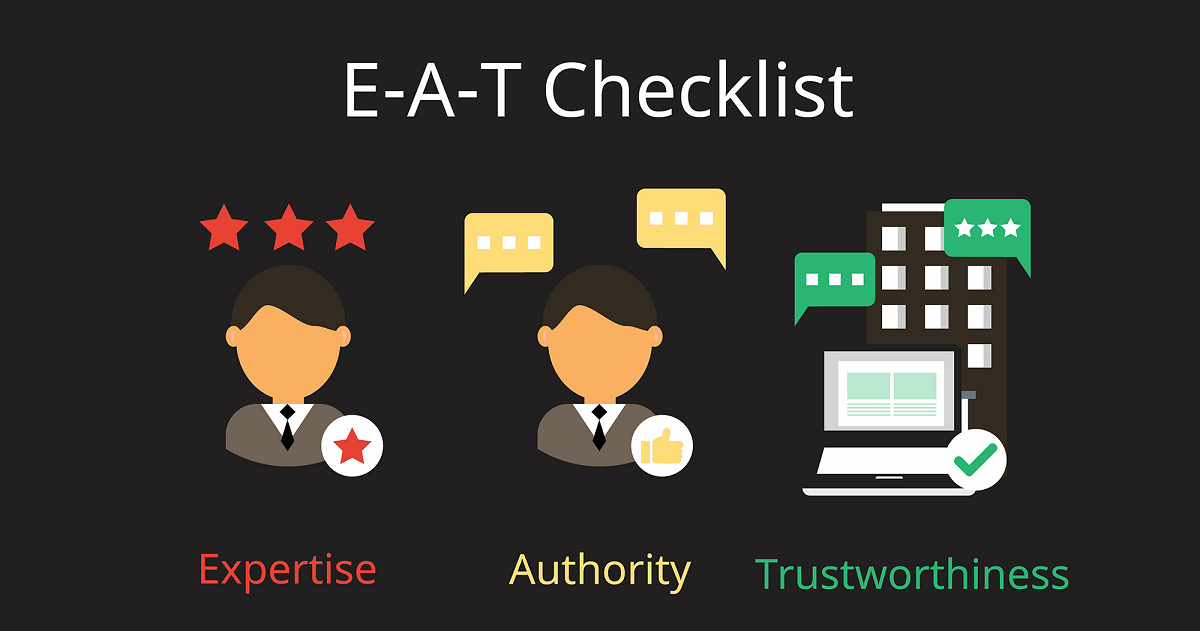BLOG
The Importance Of Regular SEO Audits For Your Online Success

In today's digital landscape, where online visibility is crucial for businesses, search engine optimization (SEO) is pivotal in driving organic traffic and improving website performance. However, maintaining a strong SEO presence requires more than initial optimization efforts. Regular SEO audits ensure your website meets search engine guidelines and user expectations, leading to sustained online success.
An SEO audit is a comprehensive review of your website's performance, covering various aspects such as technical infrastructure, on-page content, off-page factors like backlinks, and overall user experience. By conducting regular audits, you can identify and rectify issues hindering your website's visibility and performance in search engine results pages (SERPs).
This blog will delve into the importance of regular SEO audits and how they contribute to your online success. We will explore the benefits of staying proactive with your SEO strategy, the critical elements of an effective audit, and practical insights on conducting and leveraging the results of these audits. Stay tuned to discover how regular SEO audits can elevate your website's performance and drive sustainable growth in the competitive online landscape.
What Is An SEO Audit?
An SEO audit comprehensively evaluates a website's performance and adherence to search engine optimization (SEO) best practices. It involves analyzing various aspects of the website, including technical elements, on-page content, off-page factors like backlinks, and overall user experience.
An SEO audit aims to identify improvement areas and develop strategies to enhance the website's visibility in search engine results pages (SERPs). By conducting an SEO audit, businesses can uncover issues impacting their organic search performance and take corrective actions to optimize their website for better rankings and user experience.
The Importance Of Conducting Regular Audits
Regular audits are crucial for assessing website health and identifying areas for improvement in an ever-evolving digital landscape. By conducting periodic audits, businesses can stay ahead of changes in search engine algorithms, technological advancements, and user behavior patterns.
These audits provide valuable insights into the overall health of a website, including its technical performance, content quality, and backlink profile. They help businesses identify and fix issues hindering their search engine visibility, user experience, and, ultimately, their online success. Additionally, regular audits enable businesses to track their progress over time, making it easier to measure the effectiveness of their SEO strategies and make informed decisions for future improvements.
Benefits of Regular SEO Audits
Regular SEO audits offer several key benefits that contribute to the overall success of an online business:
- Improved Website Performance: Audits help identify technical issues impacting website speed, mobile-friendliness, and overall user experience. By addressing these issues, businesses can enhance their website's performance, leading to better user engagement and higher conversion rates.
- Enhanced Search Engine Visibility: Audits uncover factors affecting a website's search engine rankings, such as broken links, duplicate content, or poor-quality backlinks. By addressing these issues, businesses can improve their website's visibility in search engine results pages (SERPs), increasing organic traffic.
- Better User Experience: Audits assess various aspects of user experience, such as website navigation, content relevance, and mobile responsiveness. By optimizing these elements, businesses can provide visitors with a seamless and enjoyable experience, leading to higher retention rates and improved customer satisfaction.
- Competitive Advantage: Regular audits help businesses stay updated with the latest SEO trends and best practices. By implementing audit recommendations, businesses can stay ahead of their competitors regarding search engine rankings, visibility, and overall online presence.
- Data-Driven Decision-Making: Audits provide valuable data and insights to guide strategic decision-making. By analyzing audit reports, businesses can identify trends, opportunities, and areas for improvement, allowing them to make informed decisions to drive their SEO strategy forward.
Overall, regular SEO audits are essential for maintaining a healthy and competitive online presence, ensuring that businesses can adapt to the dynamic nature of the digital landscape and continue to attract and retain customers effectively.
Critical Elements of an SEO Audit
- Technical SEO Analysis: Assessing technical aspects like website speed, mobile-friendliness, site structure, URL structure, indexing, and crawlability to ensure that search engines can efficiently crawl and index the site.
- On-Page SEO Evaluation: Reviewing on-page elements such as title tags, meta descriptions, headings, content quality, keyword usage, internal linking, and schema markup to optimize individual pages for relevant keywords and user experience.
- Off-Page SEO Assessment: Analyzing the website's backlink profile, including the quantity, quality, and relevance of backlinks, social signals, and online reputation management, to enhance the site's authority and credibility.
- Keyword Research and Analysis: Conduct keyword research to identify relevant keywords and search terms that align with the website's content and target audience, ensuring effective optimization for search queries.
- Content Audit: Evaluating the quality, relevance, and uniqueness of existing content, identifying opportunities for new content creation, optimization of existing content, and content gap analysis to improve overall content strategy.
- User Experience (UX) Evaluation: Assessing the website's usability, navigation, mobile responsiveness, page layout, and overall user interface to enhance the user experience and engagement metrics.
- Competitive Analysis: Analyzing competitors' SEO strategies, keyword rankings, backlink profiles, content strategies, and overall online presence to identify opportunities and threats in the competitive landscape.
- Performance Metrics Tracking: Monitoring key performance indicators (KPIs) such as organic traffic, keyword rankings, bounce rate, conversion rate, and engagement metrics to measure the impact of SEO efforts and identify areas for improvement.
How To Conduct an SEO Audit
Conducting an SEO audit involves a systematic review of various aspects of a website to identify areas for improvement and optimization. The process typically includes several key steps:
- Start by evaluating the technical aspects of the website, such as site speed, mobile-friendliness, and crawlability. Use tools like Google PageSpeed Insights and Mobile-Friendly Test to assess these factors.
- Analyze the on-page elements, including title tags, meta descriptions, headings, and content quality. Ensure that these elements are optimized for relevant keywords and provide valuable information to users.
- Conduct an off-page SEO assessment by analyzing the website's backlink profile, social signals, and online reputation. Tools like Ahrefs or SEMrush can help in this analysis.
- Perform keyword research and analysis to identify relevant keywords for your business and ensure they are strategically integrated into your content.
Regularly conducting these audits will help you maintain a healthy and high-performing website in the competitive online landscape.
- Set Clear Objectives: Define the goals of your audit, such as improving search engine rankings, increasing organic traffic, or enhancing user experience.
- Crawl Your Website: Use a crawler tool to analyze your site's structure, internal linking, and indexability. This helps identify technical issues like broken links, duplicate content, or missing meta tags.
- Review On-Page Elements: Evaluate the on-page SEO elements like title tags, meta descriptions, headings, and content quality. Ensure they are optimized for relevant keywords and provide valuable information to users.
- Assess Technical SEO: Check technical aspects like site speed, mobile-friendliness, and schema markup. Address any issues affecting user experience or search engine crawling and indexing.
- Analyze Backlink Profile: Review your backlink profile to identify the quality and relevance of inbound links. Disavow toxic links and focus on acquiring high-quality backlinks from authoritative sources.
- Evaluate Content Strategy: Assess your content's relevance, uniqueness, and quality. Identify opportunities to optimize existing content and create new content to target relevant keywords and topics.
- Perform Keyword Research: Conduct keyword research to identify relevant keywords for your target audience. Ensure your content aligns with these keywords to improve its visibility in search results.
- Check Site Analytics: Analyze your website's performance metrics, such as traffic sources, bounce rate, and conversion rate. Use this data to identify trends and areas for improvement.
- Create an Action Plan: Based on your audit findings, prioritize issues and create an action plan to address them. Set clear timelines and responsibilities for implementing the recommended changes.
- Monitor and Iterate: Regularly monitor your website's performance after implementing the audit recommendations. Use this data to iterate and refine your SEO strategy for continuous improvement.
Case Studies Or Examples
XYZ Company, a leading e-commerce retailer, faced challenges maintaining its search engine rankings and organic traffic due to increasing competition and changing search algorithms. To address this, they conducted a comprehensive SEO audit of their website. The audit revealed several critical issues, including slow page speed, duplicate content, and outdated metadata.
Armed with these insights, XYZ Company implemented the following strategies:
- Technical Optimization: They optimized their website's technical aspects, including improving page speed by compressing images and minifying CSS and JavaScript files. They also fixed issues with mobile-friendliness and structured data markup.
- Content Quality Enhancement: Based on the audit findings, they revamped their content strategy to create high-quality, original content that targeted relevant keywords and addressed user intent more effectively.
- Backlink Profile Improvement: They thoroughly analyzed their backlink profile and disavowed toxic links while actively seeking high-quality backlinks from authoritative websites in their industry.
The Results:
- Within six months of implementing these changes, XYZ Company saw a significant improvement in its search engine rankings and organic traffic.
- Their website's average page load time they decreased by 40%, leading to a 25% increase in organic traffic.
- The revamped content strategy resulted in a 30% increase in organic traffic from long-tail keywords and a 20% increase in conversion rates.
By regularly conducting SEO audits and implementing the recommended strategies, XYZ Company was able to recover its lost rankings and achieve sustainable growth in organic traffic and online sales.
Conclusion
Regular SEO audits are essential for maintaining and improving your online success. By conducting these audits, you can identify areas for improvement, stay updated with search engine algorithms, and ensure that your website remains optimized for maximum visibility and user experience.
With the ever-changing digital marketing landscape, staying ahead of the competition requires continuous monitoring and adjustments. Making SEO audits a regular part of your strategy allows you to adapt to the evolving search trends, enhance your website's performance, and ultimately drive more traffic and conversions. Don't underestimate the power of SEO audits—they can be the key to unlocking your online potential and achieving long-term success in the digital world.











